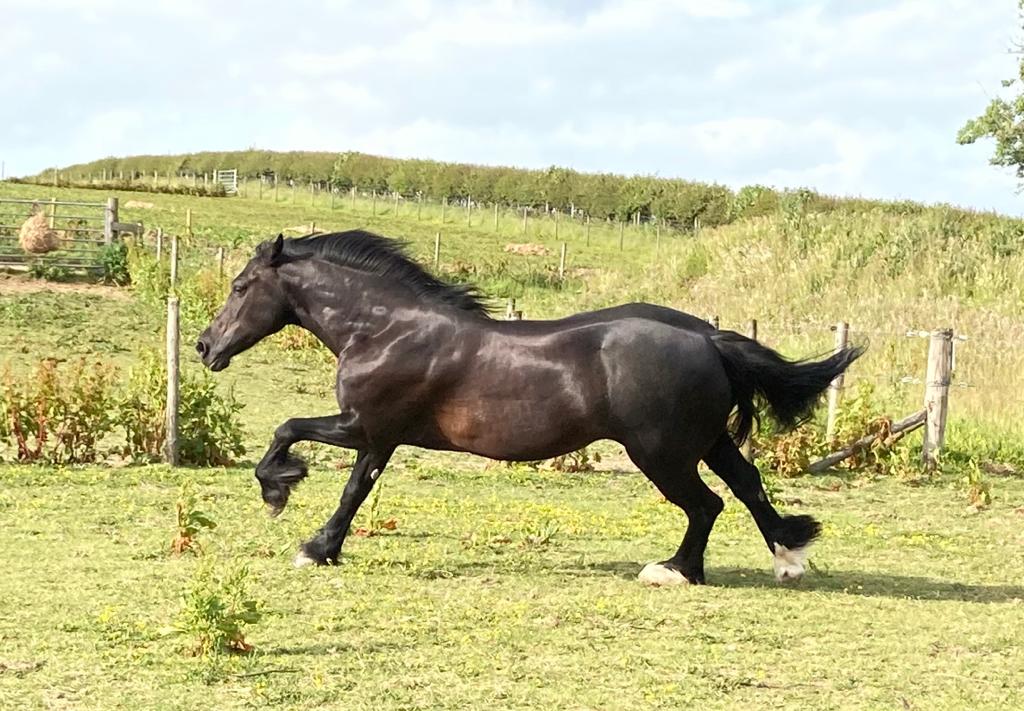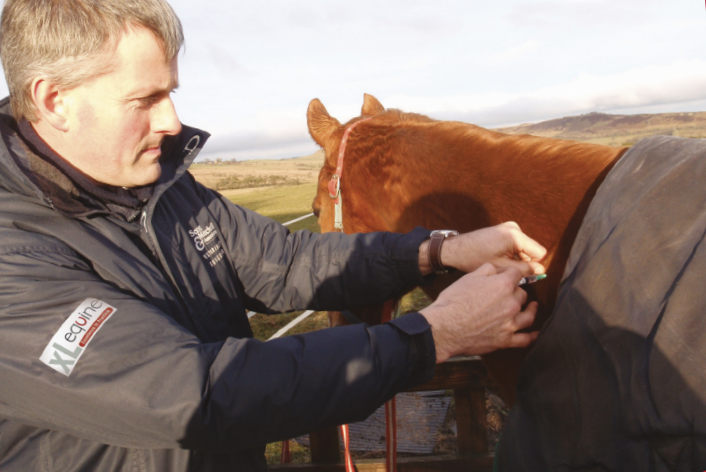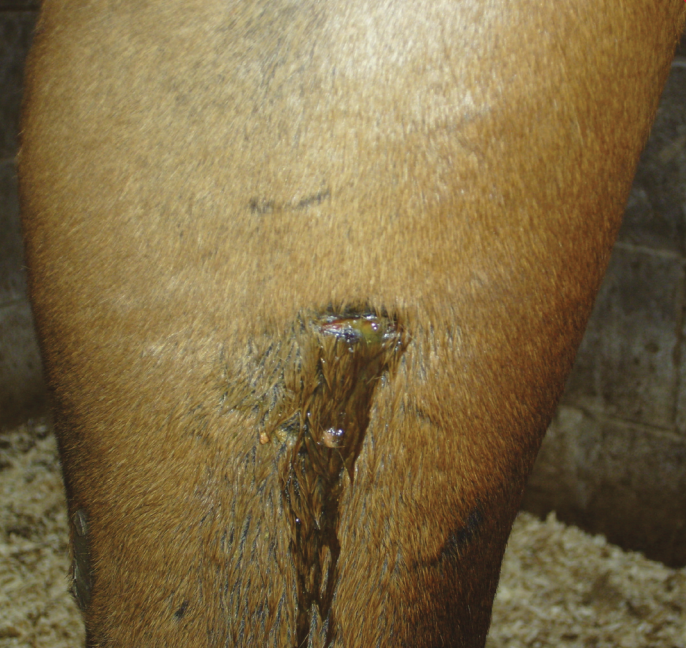
Vaccinations
Vaccinations against influenza and tetanus
Vaccinations protect your horse against life threatening diseases such as tetanus, and diseases that can severely affect their health and performance, such as equine influenza (flu). Vaccination is the only proven method of protecting against these diseases; there is no specific cure for them and treatment may be not only unsuccessful but also extremely expensive. To ensure that your horse is protected from influenza and tetanus they will have an initial course of three vaccinations followed by annual boosters (every six months for FEI events.)

Why vaccinate against influenza?
Infection is caused by a virus which is constantly evolving so, this is why flu vaccines are constantly updated to include the latest strains of the virus and regular boosters are required to maintain immune protection. Equine flu causes short-term respiratory disease, and is highly contagious. Clinical signs include coughing, nasal discharge, raised temperature, depression and poor appetite. Disease can spread very quickly between unprotected horses as the virus can travel long distances in the air. Due to its contagious nature, all horses which compete are required to be vaccinated against influenza and it is advisable that all horses are vaccinated. The reason why large epidemics are rare in the UK is due to the significant percentage of horses which are regularly vaccinated.
Vaccination protocol against influenza and tetanus:
Although the primary course consists of three vaccinations, horses are considered safe to compete seven days after the second vaccine dose. It is important your horse has its annual booster vaccination within 365 days of its previous booster otherwise the whole course will need to be restarted.
- first vaccination (from five months of age)
- second vaccination 21-92 days later
- third vaccination 150 –215 days after the second vaccination (five to seven months)
- BHA (racing) rules – annual boosters with last permissible day being the same day as previous year
- British eventing/show jumping/ endurance – boosters at intervals of not more than one year
- FEI rules – last booster within six calendar months +21 days of the day of FEI event
Why vaccinate against tetanus?
All horses should be vaccinated against tetanus. The disease is caused by the organism Clostridium tetani which lives in the soil and enters through wounds. Even when the antitoxin is given, the disease is usually fatal.
Clinical signs of tetanus are usually seen ten to fourteen days after the bacteria entered the wound. The toxins produced by the bacteria cause the horse’s muscles to continually contract. Initially the horse will appear to be slightly stiff, but it will get more severely affected and less able to move. Horses with tetanus also appear anxious and are extremely sensitive to stimuli such as being touched or sounds. Ultimately the horse has trouble eating, standing and breathing and will die from respiratory failure.
Even if aggressive treatment is attempted the disease is usually fatal in unprotected horses. However, tetanus can be easily avoided by vaccinating your horse. Pregnant mares are often given a booster in the later stages of pregnancy (usually in the last three months). This increases the antibodies available in the colostrum (first milk), to help protect the foal for the first few weeks. To supplement this, foals can be given a tetanus antitoxin soon after birth providing temporary cover
Protocol for vaccinating against tetanus only
- two doses of tetanus toxoid vaccine four to six weeks apart;
- repeat boosters every two to three years depending on the brand of vaccine used.
Key points
- influenza affects health and performance;
- influenza is very infectious;
- outbreaks of influenza are minimised by extensive
- vaccination;
- tetanus is usually fatal;
- treatment of tetanus is usually unsuccessful;
- vaccination is the primary way to protect your horse
- against these diseases;
- annual vaccinations are a good time for a yearly
- health check with your vet.

Infected wounds are a potential cause of tetanus
